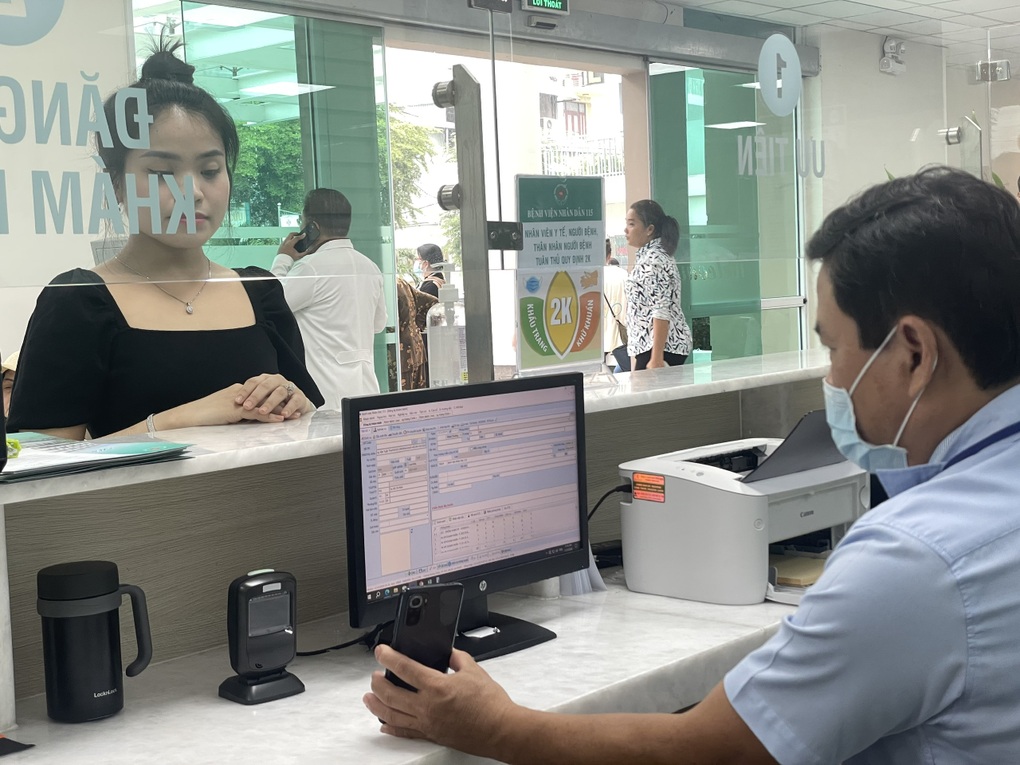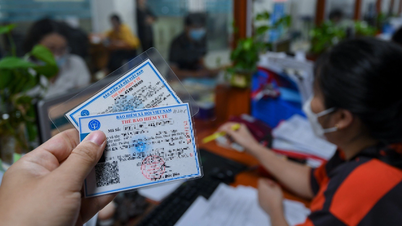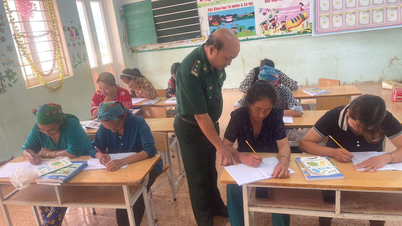On June 18, the National Center for Health Information ( Ministry of Health ) organized a workshop on Solutions for implementing electronic medical records in the Southeast region.
According to Mr. Hoang Van Tien, Deputy Head of the Department of Solutions and Quality Management, National Center for Health Information, up to now, the Ministry of Health has issued many documents guiding the implementation of electronic medical records (EMR) and set a goal that by the end of September this year, all medical facilities nationwide must complete the conversion.
However, Mr. Tien said that this process poses a big problem regarding information security. This is also one of the factors that people and medical units are most concerned about.
“Medical information is extremely sensitive data. When transferred to the network environment, the risk of leakage will be very high if there are no protection measures,” Mr. Tien warned.

People go to see a doctor at a hospital in Ho Chi Minh City (Photo: Dieu Linh).
Accordingly, medical facilities are recommended to synchronously deploy technical solutions such as firewalls, anti-virus software, access control, software source code security and periodically organize incident response drills.
He also emphasized the role of the human factor in ensuring information security. Accordingly, IT personnel need to be regularly trained in awareness and incident handling skills.
In addition, according to Mr. Do Truong Duy, Director of the National Health Information Center, the information technology infrastructure at many hospitals, especially at district and commune levels, is outdated and difficult to integrate new technologies.
Many units have to build their own data centers or rent their own servers, which makes the initial investment cost very large but the efficiency is not commensurate in the early stages of implementation.
“Without a unified database, digital transformation cannot be successful. Each facility has its own type of storage and cannot be connected, making it difficult to deploy interconnected services such as national electronic health records or sharing clinical results between hospitals,” Mr. Duy emphasized.
To successfully deploy electronic medical records, close coordination is needed between many parties: the Ministry of Health, the Ministry of Public Security , medical facilities, technology enterprises and local authorities.
According to Mr. Do Truong Duy, the cooperation of enterprises is a key factor. “We really expect enterprises to share their experiences and commit to accompany medical units. Some domestic technology enterprises have achieved a digital transformation rate of up to 100%, and they can completely support hospitals to do the same.”
In addition, training specialized IT human resources in the healthcare sector is urgent. Currently, many hospitals still assign part-time employees, lacking the time and expertise to operate the EMR system properly.
Source: https://dantri.com.vn/suc-khoe/so-hoa-benh-an-thong-tin-y-te-nhay-cam-co-nguy-co-bi-lo-20250618160011840.htm


































































































Comment (0)